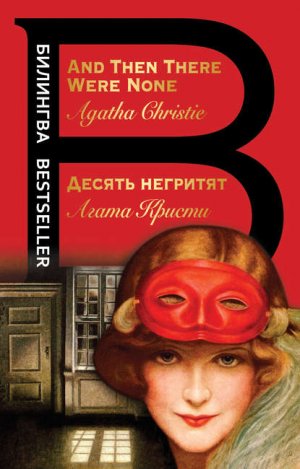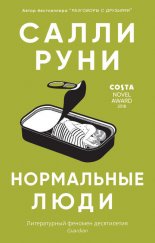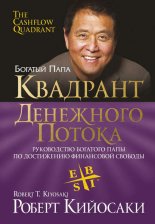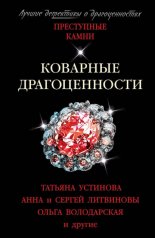Äåñÿòü íåãðèòÿò / And Then There Were None Êðèñòè Àãàòà

He took a letter from his pocket and tossed it onto the table.
«This purports to be from an old friend of mine, Lady Constance Culmington. I hove not seen her for some years. She went to the East. It is exactly the kind of vague incoherent letter she would write, urging me to join her here and referring to her host and hostess in the vaguest of terms. The same technique, you will observe. I only mention it because it agrees with the other evidence – from all of which emerges one interesting point. Whoever it was who enticed us here, that person knows or has taken the trouble to find out a good deal about us all. He, whoever he may be, is aware of my friendship for Lady Constance – and is familiar with her epistolary style. He knows something about Dr. Armstrong’s colleagues and their present whereabouts. He knows the nickname of Mr. Marston’s friend and the kind of telegrams he sends. He knows exactly where Miss Brent was two years ago for her holiday and the kind of people she met there. He knows all about General Macarthur’s old cronies.»
He paused. Then he said:
«He knows, you see, a good deal. And out of his knowledge concerning us, he has made certain definite accusations.»
Immediately a babel broke out.
General Macarthur shouted: «A pack of damn lies! Slander!»
Vera cried out: «It’s iniquitous!» Her breath came fast. «Wicked!»
Rogers said hoarsely:
«A lie – a wicked lie… we never did – neither of us…»
Anthony Marston growled:
«Don’t know what the damned fool was getting at!»
The upraised hand of Mr. Justice Wargrave calmed the tumult. He said, picking his words with care:
«I wish to say this. Our unknown friend accuses me of the murder of one Edward Seton. I remember Seton perfectly well. He came up before me for trial in June of the year 1930. He was charged with the murder of an elderly woman. He was very ably defended and made a good impression on the jury in the witness box. Nevertheless, on the evidence, he was certainly guilty. I summed up accordingly, and the jury brought in a verdict of Guilty. In passing sentence of death I concurred with the verdict. An appeal was lodged on the grounds of misdirection. The appeal was rejected and the man was duly executed. I wish to say before you all that my conscience is perfectly clear on the matter. I did my duty and nothing more. I passed sentence on a rightly convicted murderer.»
Armstrong was remembering now. The Seton case! The verdict had come as a great surprise. He had met Matthews, K.C., on one of the days of the trial dining at a restaurant. Matthews had been confident. «Not a doubt of the verdict. Acquittal practically certain.» And then afterwards he had heard comments: «Judge was dead against him. Turned the jury right round and they brought him in guilty. Quite legal, though. Old Wargrave knows his law.» «It was almost as though he had a private down on the fellow.»
All these memories rushed through the doctor’s mind. Before he could consider the wisdom of the question he had asked impulsively:
«Did you know Seton at all? I mean previous to the case.»
The hooded reptilian eyes met his. In a clear cold voice the judge said:
«I knew nothing of Seton previous to the case.»
Armstrong said to himself:
«The fellow’s lying – I know he’s lying.»
II
Vera Claythorne spoke in a trembling voice. She said:
«I’d like to tell you. About that child – Cyril Hamilton. I was nursery governess to him. He was forbidden to swim out far. One day, when my attention was distracted, he started off. I swam after him… I couldn’t get there in time… It was awful… But it wasn’t my fault. At the inquest the Coroner exonerated me. And his mother – she was so kind. If even she didn’t blame me, why should – why should this awful thing be said? It’s not fair – not fair…»
She broke down, weeping bitterly.
General Macarthur patted her shoulder. He said:
«There, there, my dear. Of course it’s not true. Fellow’s a madman. A madman! Got a bee in his bonnet! Got hold of the wrong end of the stick all round.»
He stood erect, squaring his shoulders. He barked out:
«Best really to leave this sort of thing unanswered. However, feel I ought to say – no truth – no truth whatsoever in what he said about – er – young Arthur Richmond. Richmond was one of my officers. I sent him on a reconnaissance. He was killed. Natural course of events in war time. Wish to say resent very much – slur on my wife. Best woman in the world. Absolutely – Caesar’s wife!»
General Macarthur sat down. His shaking hand pulled at his moustache. The effort to speak had cost him a good deal.
Lombard spoke. His eyes were amused. He said:
«About those natives —»
Marston said: «What about them?»
Philip Lombard grinned.
«Story’s quite true! I left ‘em! Matter of self-preservation. We were lost in the bush. I and a couple of other fellows took what food there was and cleared out.»
General Macarthur said sternly:
«You abandoned your men – left them to starve?»
Lombard said: «Not quite the act of a pukka sahib, I’m afraid. But self-preservation’s a man’s first duty. And natives don’t mind dying, you know. They don’t feel about it as Europeans do.»
Vera lifted her face from her hands. She said, staring at him:
«You left them – to die?»
Lombard answered: «I left them to die.»
His amused eyes looked into her horrified ones.
Anthony Marston said in a slow puzzled voice:
«I’ve just been thinking – John and Lucy Combes. Must have been a couple of kids I ran over near Cambridge. Beastly bad luck.»
Mr. Justice Wargrave said acidly: «For them, or for you?»
Anthony said: «Well, I was thinking – for me – but of course, you’re right, sir, it was damned bad luck on them. Of course it was a pure accident. They rushed out of some cottage or other. I had my licence endorsed for a year. Beastly nuisance.»
Dr. Armstrong said warmly:
«This speeding’s all wrong – all wrong! Young men like you are a danger to the community.»
Anthony shrugged his shoulders. He said:
«Speed’s come to stay. English roads are hopeless, of course. Can’t get up a decent pace on them.»
He looked round vaguely for his glass, picked it up off a table and went over to the side table and helped himself to another whiskey and soda. He said over his shoulder:
«Well, anyway, it wasn’t my fault. Just an accident!»
III
The manservant, Rogers, had been moistening his lips and twisting his hands. He said now in a low deferential voice:
«If I might just say a word, sir.»
Lombard said: «Go ahead, Rogers.»
Rogers cleared his throat and passed his tongue once more over his dry lips.
«There was a mention, sir, of me and Mrs. Rogers. And of Miss Brady. There isn’t a word of truth in it, sir. My wife and I were with Miss Brady till she died. She was always in poor health, sir, always from the time we came to her. There was a storm, sir, that night – the night she was taken bad. The telephone was out of order. We couldn’t get the doctor to her. I went for him, sir, on foot. But he got there too late. We’d done everything possible for her, sir. Devoted to her, we were. Any one will tell you the same. There was never a word said against us. Not a word.»
Lombard looked thoughtfully at the man’s twitching face, his dry lips, the fright in his eyes. He remembered the crash of the falling coffee tray. He thought, but did not say, «Oh, yea?»
Blore spoke – spoke in his hearty bullying official manner. He said:
«Came into a little something at her death, though? Eh?»
Rogers drew himself up. He said stiffly:
«Miss Brady left us a legacy in recognition of our faithful services. And why not, I’d like to know?»
Lombard said: «What about yourself, Mr. Blore?»
«What about me?»
«Your name was included in the list.»
Blore went purple.
«Landor, you mean? That was the bank robbery – London and Commercial.»
Mr. Justice Wargrave stirred. He said:
«I remember. It didn’t come before me, but I remember the case. Landor was convicted on your evidence. You were the police officer in charge of the case?»
Blore said: «I was.»
«Landor got penal servitude for life and died in Dartmoor a year later. He was a delicate man.»
Blore said: «He was a crook. It was he who knocked out the night watchman. The case was quite clear against him.»
Wargrave said slowly:
«You were complimented, I think, on your able handling of the case.»
Blore said sulkily:
«I got my promotion.»
He added in a thick voice:
«I was only doing my duty.»
Lombard laughed – a sudden ringing laugh. He said:
«What a duty-loving, law-abiding lot we all seem to be! Myself excepted. What about you, doctor – and your little professional mistake? Illegal operation, was it?»
Emily Brent glanced at him in sharp distaste and drew herself away a little.
Dr. Armstrong, very much master of himself, shook his head good-humouredly.
«I’m at a loss to understand the matter,» he said. «The name meant nothing to me when it was spoken. What was it – Clees? Close? I really can’t remember having a patient of that name, or being connected with a death in any way. The thing’s a complete mystery to me. Of course, it’s a long time ago. It might possibly be one of my operation cases in hospital. They come too late, so many of these people. Then, when the patient dies, they always consider it’s the surgeon’s fault.»
He sighed, shaking his head.
He thought:
«Drunk – that’s what it was – drunk… And I operated! Nerves all to pieces – hands shaking. I killed her, all right. Poor devil – elderly woman – simple job if I’d been sober. Lucky for me there’s loyalty in our profession. The Sister knew, of course – but she held her tongue, God, it gave me a shock! Pulled me up. But who could have known about it – after all these years?»
IV
There was a silence in the room. Everybody was looking, covertly or openly, at Emily Brent. It was a minute or two before she became aware of the expectation. Her eyebrows rose on her narrow forehead. She said:
«Are you waiting for me to say something? I have nothing to say.»
The judge said: «Nothing, Miss Brent?»
«Nothing.»
Her lips closed tightly. The judge stroked his face. He said mildly:
«You reserve your defence?»
Miss Brent said coldly:
«There is no question of defence. I have always acted in accordance with the dictates of my conscience. I have nothing with which to reproach myself.»
There was an unsatisfied feeling in the air. But Emily Brent was not one to be swayed by public opinion. She sat unyielding.
The judge cleared his throat once or twice. Then he said:
«Our inquiry rests there. Now, Rogers, who else is there on this island besides ourselves and you and your wife?»
«Nobody, sir. Nobody at all.»
«You’re sure of that?»
«Quite sure, sir.»
Wargrave said:
«I am not yet clear as to the purpose of our Unknown host in getting us to assemble here. But in my opinion this person, whoever he may be, is not sane in the accepted sense of the word. He may be dangerous. In my opinion it would be well for us to leave this place as soon as possible. I suggest that we leave tonight.»
Rogers said: «I beg your pardon, sir, but there’s no boat on the island.»
«No boat at all?»
«No, sir.»
«How do you communicate with the mainland?»
«Fred Narracott, he comes over every morning, sir. He brings the bread and the milk and the post, and takes the orders.»
Mr. Justice Wargrave said: «Then in my opinion it would be well if we all left tomorrow morning as soon as Narracott’s boat arrives.»
There was a chorus of agreement with only one dissentient voice. It was Anthony Marston who disagreed with the majority.
«A bit unsporting, what?» he said. «Ought to ferret out the mystery before we go. Whole thing’s like a detective story. Positively thrilling.»
The judge said acidly:
«At my time of life, I have no desire for ‘thrills,’ as you call them.»
Anthony said with a grin:
«The legal life’s narrowing! I’m all for crime! Here’s to it.»
He picked up his drink and drank it off at a gulp. Too quickly, perhaps. He choked – choked badly. His face contorted, turned purple. He gasped for breath – then slid down off his chair, the glass falling from his hand.
Chapter 5
I
It was so sudden and so unexpected that it took every one’s breath away. They remained stupidly staring at the crumpled figure on the ground.
Then Dr. Armstrong jumped up and went over to him, kneeling beside him. When he raised his head his eyes were bewildered.
He said in a low awe-struck whisper: «My God! he’s dead!»
They didn’t take it in. Not at once.
Dead? Dead? That young Norse God in the prime of his health and strength. Struck down all in a moment. Healthy young men didn’t die like that, choking over a whiskey and soda…
No, they couldn’t take it in.
Dr. Armstrong was peering into the dead man’s face. He sniffed at the blue twisted lips. Then he picked up the glass from which Anthony Marston had been drinking.
General Macarthur said: «Dead: D’you mean the fellow just choked and – and died?»
The physician said: «You can call it choking if you like. He died of asphyxiation right enough.»
He was sniffing now at the glass. He dipped a finger into the dregs and very cautiously just touched the finger with the tip of his tongue.
His expression altered.
General Macarthur said:
«Never knew a man could die like that – just of a choking fit!»
Emily Brent said in a clear voice:
«In the midst of life we are in death.»
Dr. Armstrong stood up. He said brusquely:
«No, a man doesn’t die of a mere choking fit. Marston’s death wasn’t what we call a natural death.»
Vera said almost in a whisper: «Was there – something – in the whiskey?»
Armstrong nodded.
«Yes. Can’t say exactly. Everything points to one of the cyanides. No distinctive smell of Prussic Acid, probably Potassium Cyanide. It acts pretty well instantaneously».
The judge said sharply: «It was in his glass?»
«Yes.»
The doctor strode to the table where the drinks were. He removed the stopper from the whiskey and smelt and tasted it. Then he tasted the soda water. He shook his head.
«They’re both all right.»
Lombard said: «You mean – he must have put the stuff in his glass himself!»
Armstrong nodded with a curiously dissatisfied expression. He said:
«Seems like it.»
Blore said: «Suicide, eh? That’s a queer go.»
Vera said slowly:
«You’d never think that he would kill himself. He was so alive. He was – oh enjoying himself! When he came down the hill in his car this evening he looked he looked – oh, I can’t explain!»
But they knew what she meant. Anthony Marston, in the height of his youth and manhood, had seemed like a being who was immortal. And now, crumpled and broken, he lay on the floor.
Dr. Armstrong said: «Is there any possibility other than suicide?»
Slowly every one shook his head. There could be no other explanation. The drinks themselves were untampered with. They had all seen Anthony Marston go across and help himself. It followed therefore that any Cyanide in the drink must have been put there by Anthony Marston himself.
And yet – why should Anthony Marston commit suicide?
Blore said thoughtfully: «You know, doctor, it doesn’t seem right to me. I shouldn’t have said Mr. Marston was a suicidal type of gentleman.»
Armstrong answered: «I agree.»
II
They had left it like that. What else was there to say?
Together Armstrong and Lombard had carried the inert body of Anthony Marston to his bedroom and had laid him there covered over with a sheet.
When they came downstairs again, the others were standing in a group, shivering a little, though the night was not cold.
Emily Brent said:
«We’d better go to bed. It’s late.»
It was past twelve o’clock. The suggestion was a wise one – yet every one hesitated. It was as though they clung to each other’s company for reassurance.
The judge said: «Yes, we must get some sleep.»
Rogers said: «I haven’t cleared yet – in the dining-room.»
Lombard said curtly: «Do it in the morning.»
Armstrong said to him: «Is your wife all right?»
«I’ll go and see, sir.»
He returned a minute or two later.
«Sleeping beautiful, she is.»
«Good,» said the doctor. «Don’t disturb her.»
«No, sir. I’ll just put things straight in the dining-room and make sure everything’s locked up right, and then I’ll turn in.»
He went across the hall into the dining-room.
The others went upstairs, a slow unwilling procession.
If this had been an old house, with creaking wood, and dark shadows, and heavily panelled walls, there might have been an eerie feeling. But this house was the essence of modernity. There were no dark corners – no possible sliding panels – it was flooded with electric light – everything was new and bright and shining. There was nothing hidden in this house, nothing concealed. It had no atmosphere about it.
Somehow, that was the most frightening thing of all…
They exchanged good-nights on the upper landing. Each of them went into his or her own room, and each of them automatically, almost without conscious thought, locked the door…
III
In his pleasant softly tinted room, Mr. Justice Wargrave removed his garments and prepared himself for bed.
He was thinking about Edward Seton.
He remembered Seton very well. His fair hair, his blue eyes, his habit of looking you straight in the face with a pleasant air of straightforwardness. That was what had made so good an impression on the jury.
Llewellyn, for the Crown, had bungled it a bit. He had been over-vehement, had tried to prove too much. Matthews, on the other hand, for the Defence, had been good. His points had told. His cross-examinations had been deadly. His handling of his client in the witness box had been masterly.
And Seton had come through the ordeal of cross-examination well. He had not got excited or over-vehement. The jury had been impressed. It had seemed to Matthews, perhaps, as though everything had been over bar the shouting. The judge wound up his watch carefully and placed it by the bed.
He remembered exactly how he had felt sitting there – listening, making notes, appreciating everything, tabulating every scrap of evidence that told against the prisoner.
He’d enjoyed that case! Matthews’ final speech had been first-class. Llewellyn, coming after it, had failed to remove the good impression that the defending counsel had made.
And then had come his own summing up…
Carefully, Mr. Justice Wargrave removed his false teeth and dropped them into a glass of water. The shrunken lips fell in. It was a cruel mouth now, cruel and predatory.
Hooding his eyes, the judge smiled to himself.
He’d cooked Seton’s goose all right!
With a slightly rheumatic grunt, he climbed into bed and turned out the electric light.
IV
Downstairs in the dining-room, Rogers stood puzzled.
He was staring at the china figures in the centre of the table.
He muttered to himself:
«That’s a rum go! I could have sworn there were ten of them.»
V
General Macarthur tossed from side to side.
Sleep would not come to him.
In the darkness he kept seeing Arthur Richmond’s face.
He’d liked Arthur – he’d been damned fond of Arthur. He’d been pleased that Leslie liked him too. Leslie was so capricious. Lots of good fellows that Leslie would turn up her nose at and pronounce dull. «Dull!» Just like that.
But she hadn’t found Arthur Richmond dull. They’d got on well together from the beginning. They’d talked of plays and music and pictures together. She’d teased him, made fun of him, ragged him. And he, Macarthur, had been delighted at the thought that Leslie took quite a motherly interest in the boy.
Motherly indeed! Damn fool not to remember that Richmond was twenty-eight to Leslie’s twenty-nine.






